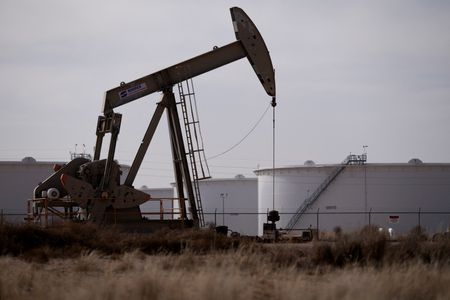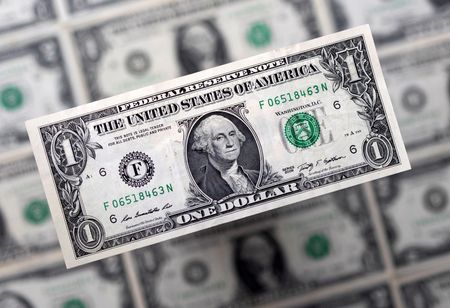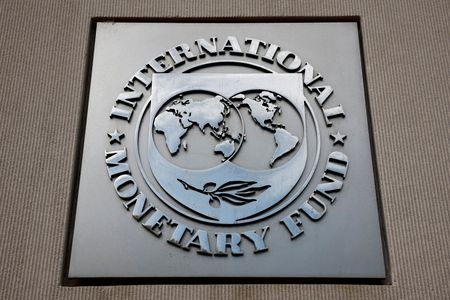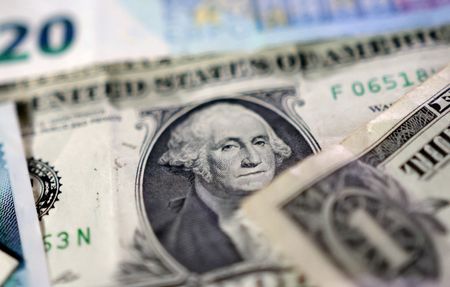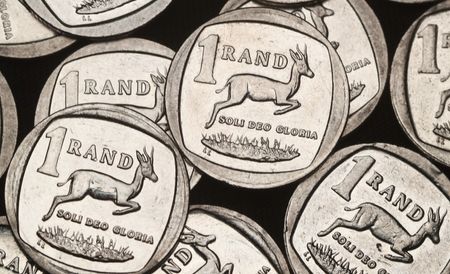By Colleen Howe and Jeslyn Lerh
SINGAPORE (Reuters) – Oil prices retreated on Wednesday as traders eyed a potential jump in U.S. crude inventories, though prices held near two-week highs amid optimism after the United States and China agreed to temporarily lower their reciprocal tariffs.
Brent crude futures fell 39 cents, or 0.6%, to $66.24 a barrel by 0400 GMT. U.S. West Texas Intermediate (WTI) crude slipped 36 cents, or 0.6%, to $63.31. Both benchmarks had climbed more than 2.5% in the previous session.
The two largest economies agreed on Monday to pause their trade war for at least 90 days, with the United States cutting tariffs to 30% from 145% and China slashing duties on U.S. imports to 10% from 125%.
“The U.S.-China economic pause might have crafted a narrative that could invigorate demand amidst a backdrop of cautious optimism,” said Priyanka Sachdeva, senior market analyst at Phillip Nova.
However, expectations of a staggering jump in U.S. oil inventories capped optimism for now, Sachdeva added.
“This sharp contrast to last week’s substantial draw signals that the demand side is still grappling with significant challenges, leaving market watchers on edge and wondering where the next twist will come from,” she said.
Crude stocks were up by 4.3 million barrels in the week ended May 9, market sources said, citing American Petroleum Institute figures on Tuesday.
Official weekly inventory data from the U.S. Energy Information Administration is due on Wednesday at 10:30 a.m. EDT (1430 GMT).
Investors remain watchful of demand signals. Rystad energy analysts said in a note the agreement had “eroded some demand side pessimism,” while cautioning against any lingering impact of the tariffs despite the rollbacks.
The market is also watching U.S. President Donald Trump’s Gulf trip, begun on Tuesday with an appearance at an investment forum in Riyadh, where he said the U.S. would lift longstanding sanctions on Syria and secured a $600-billion pledge of Saudi investment.
Rystad Energy’s global head of commodity markets Mukesh Sahdev said preventing oil price spikes over the summer travel season will be a key part of the president’s agenda on the trip.
The United States could take advantage of lower prices to buy more Middle East crude for its Strategic Petroleum Reserve, he added.
“The big unknown for the market is how U.S. actions related to Iran, Russia and Venezuela will result in supply disruptions or additions,” Sahdev said.
On Tuesday, the United States slapped fresh sanctions on about 20 companies it said were helping Iran’s Armed Forces General Staff and its front company, Sepehr Energy, send Iranian oil to China.
The sanctions follow a fourth round of U.S.-Iran talks in Oman to tackle disputes over Iran’s nuclear programme.
(Reporting by Colleen Howe in Beijing and Jeslyn Lerh in Singapore; Editing by Sonali Paul and Clarence Fernandez)

